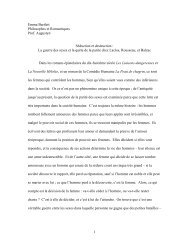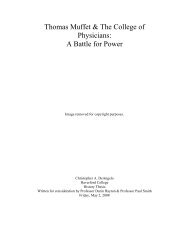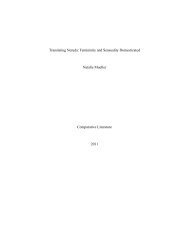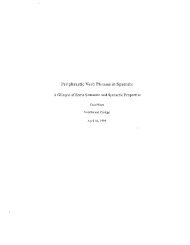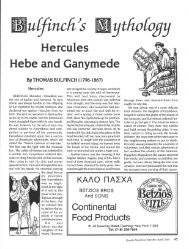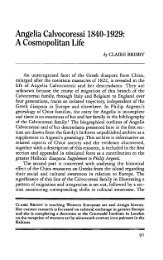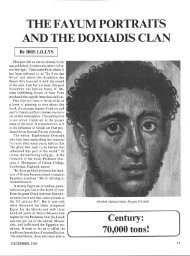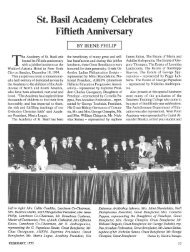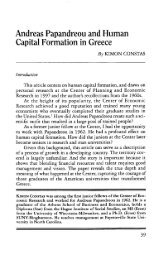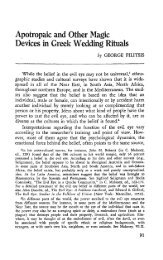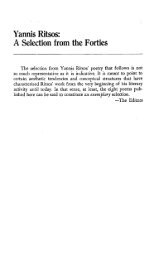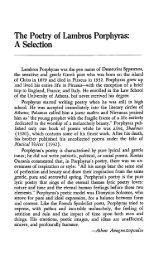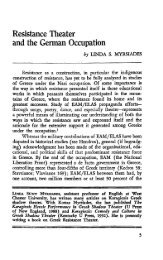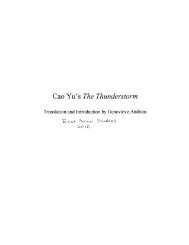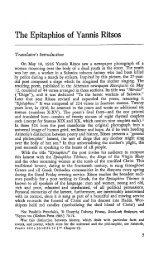Mythistorema - Triceratops Home
Mythistorema - Triceratops Home
Mythistorema - Triceratops Home
Create successful ePaper yourself
Turn your PDF publications into a flip-book with our unique Google optimized e-Paper software.
64 JOURNAL OF THE HELLENIC DIASPORA<br />
Under the leaves of that plane<br />
And teach him to study the trees.<br />
One can discern in this appeal, beyond the general level of the poem,<br />
the more personal disaster associated with the disaster of war. Seferis<br />
is using the historical context for subtle instruction. When he says in<br />
the last line "teach him to study the trees," the implication is that the<br />
study of the laws of nature can help one search for harmony and order in<br />
his own life.<br />
This last line of the poem ("And teach him to study the trees") is<br />
connected with the second stanza of the poem, which refers to tradition:<br />
The olive trees with the wrinkles of our fathers<br />
The rocks with the wisdom of our fathers<br />
And our brother's blood living upon the earth<br />
Were a robust joy a rich injunction<br />
For the souls who understood their prayer.<br />
Olive trees live for centuries, and their trunks are full of cracks and scars,<br />
symbolizing here the long suffering of the ancestors and the struggle<br />
through the years to maintain this classical Greek tradition. Rocks in<br />
Seferis' poetry often stand for classical Greek concepts and ideas, and<br />
the "brother's blood living upon the earth" is a symbol of the countless<br />
sacrifices that the Greeks have made in order to survive in this ancient<br />
land. All these were "a robust joy a rich injunction/ For the souls who<br />
understood their prayer," namely the souls who were in harmony with<br />
their universe, who lived with certain beliefs and who knew where to<br />
address themselves in difficult times.<br />
Although the poet's plea to save the children from the consequences<br />
of the war is very important, the message of the last line to "teach the<br />
children" cannot be missed by anyone familiar with Seferis' emphasis,<br />
throughout his work, on the Aeschylean principles of the order of things<br />
and the mechanism of justice.<br />
As far as the symbolic journey is concerned, the poem seems to suggest,<br />
although very indirectly, that the journey cannot be realized if one<br />
does not become aware of these principles very early in life.<br />
18<br />
In poem "18" the symbolic journey is presented as an immense waste<br />
and failure:<br />
I am sorry to have allowed a broad river to pass between my<br />
fingers<br />
Without drinking a single drop.



